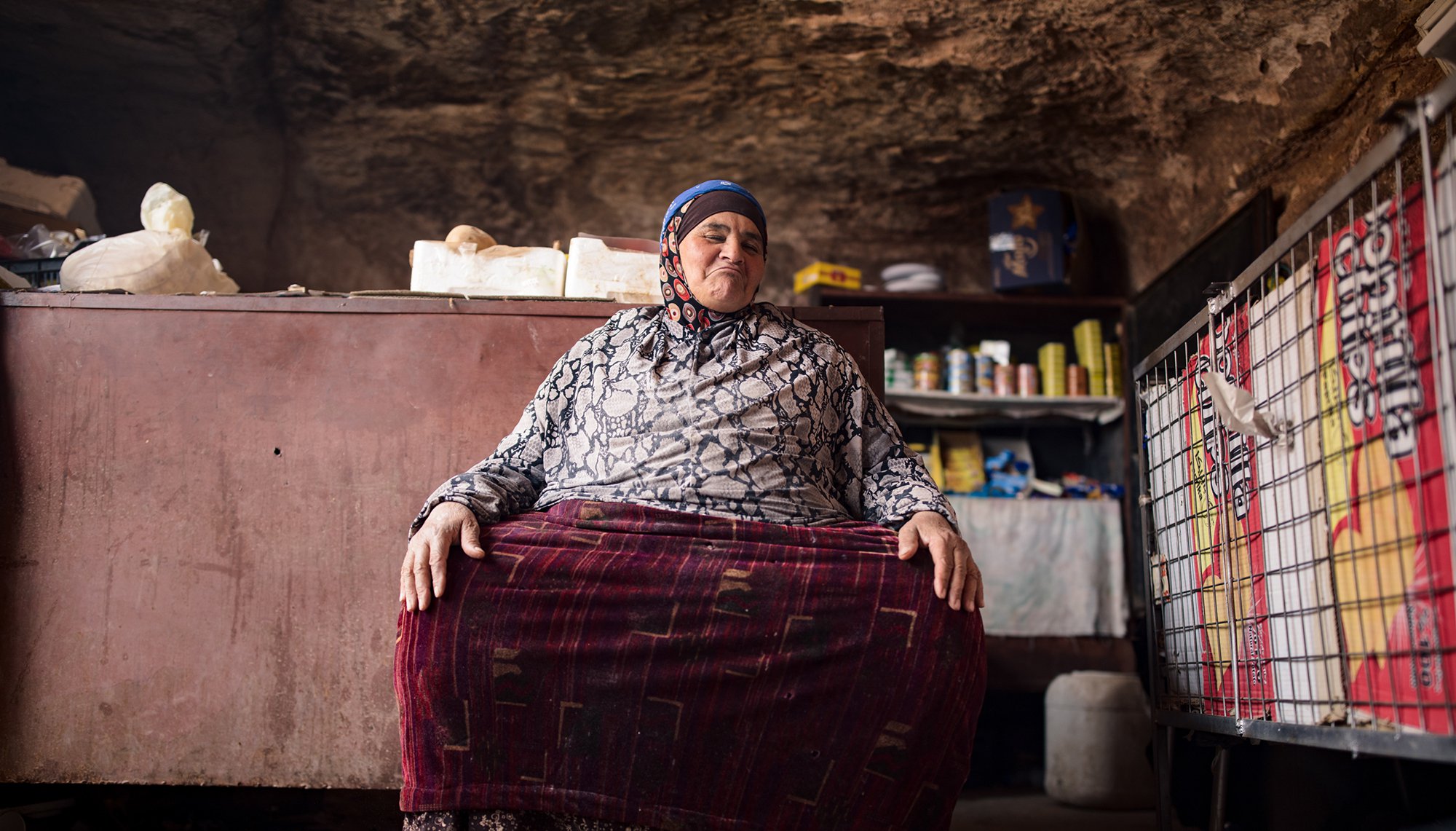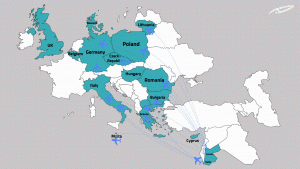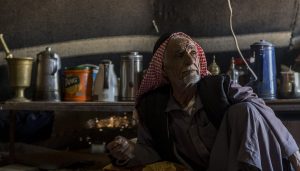Even the most pessimistic of us would not have thought that we would wake up yesterday to the news of writer Nahed Hattar’s assassination, who was shot in front of the courthouse, the abode of law and the center of the state’s fragile dignity.
This crime came after weeks of incitement and threats directed at the writer, beginning when he shared a caricature on his Facebook page titled “the god of ISIS.” It was claimed that he “insulted divinity” by depicting how ISIS supporters view God, and was therefore detained at the behest of Prime Minister Hani al-Mulqi. The investigation began on August 13, and Hattar was released on bail after over a month of detention.
If blood stains the hands of Hattar’s assassin who fired four shots at him, then the hands of the state and instigators are not clean either.
Since Hattar’s arrest, the state has tried to “please everyone” by promoting two contradictory narratives. One, directed at certain groups and international organizations within tight circles, stated that Hattar’s arrest was for the purpose of “protecting his life”, according to the government’s spokesperson, Mohammad al Momani, and the Minister of Political and Parliamentary affairs, Mousa Ma’aytah. Another parallel discourse publicly condemned Hattar before his trial, giving legitimacy to the accusations against him of “insulting divinity”. Then, Mulqi himself intervened to call for “verifying what has been attributed to the writer Nahed Hattar… and referring him to the Administrative Prosecutor.” He emphasized that the “law will be strictly implemented on whoever performs such unexpected practices in our society, with the full knowledge that the freedom of expression is preserved for all but only within the limits of the constitution and the law.”
In light of this, one cannot help but wonder at the government’s comment on the crime today, as Momani assured that “the law will be strictly applied to the person who carried out this criminal act, and on whoever exploits this crime to broadcast hate speech, which is alien to our society.”
Hate speech did not suddenly emerge in our society, but has been present since the legal case was initiated against Hattar and even before it. Incitement against the murdered writer started on social media and other platforms, with threats to kill him published and delivered directly to him. These threats did not warrant “an order to investigate” nor did they initiate any legal case against the instigators. Though the assassin is one person, those who have applauded the murder are many. Many have paraded their public opinions in front of the state, which in turn chose to ingratiate the commentators to preserve its false popularity at the expense of a citizen’s safety.
Accusations of inciting sectarian and regional bigotry and undermining the political regime have often been used against citizens who have advocated for political change or expressed positions and personal opinions which did not compromise the lives or safety of others. In contrast, threats to kill and harm slip under the radar of the state.
If this wasn’t the same government that initiated Hattar’s trial, we might have been able to describe its role as negligent or complacent. But when its popularity is considered more important than protecting the life of one of its citizens, then the state’s responsibility regarding this crime becomes much more significant. This is what the Hattar family expressed when they asserted that they “ informed the official authorities of the threats of murder he has received, and that the Minister of Interior Affairs, Salameh Hammad, was fully informed and had promised to take measures for Hattar’s protection.”
If the state had truly sensed the danger Hattar’s life was in to the extent of detaining him for a month, couldn’t it have provided security for him at the courthouse on his way to his publicly announced trial, at which many had wished for his execution?
On the other hand, rejecting random killings and emphasizing the rule of law are not enough without also standing up for freedom of thought and expression. Putting Hattar on trial for inciting sectarian and racial bigotry under the penal code (a charge whose penalty could lead to three years in prison) was not at all the appropriate alternative to this heinous crime. In effect, his trial contributed to the promotion of hate speech by circulating the message that there is no space for differences in opinion without punishment. And the victim-blaming rhetoric of “execute him by law, do not kill him on the street” consolidates the same foundations from which the crime emerges.
Perhaps this shocking crime will remind us all, including the state, that not all talk is transient and that strife is not deterred by censorship edicts and official statements constantly and consistently affirming the strength of our “safety and security”. The safety we desire is not achieved by a mere affirmation of tolerance and good morals. It may be reached by instituting equality in the law for all Jordanian men and women, and by empowering Jordanians to express their political, intellectual, and personal opinions without fear, among many other measures.
May Nahed Hattar rest in peace, and condolences to his family.






